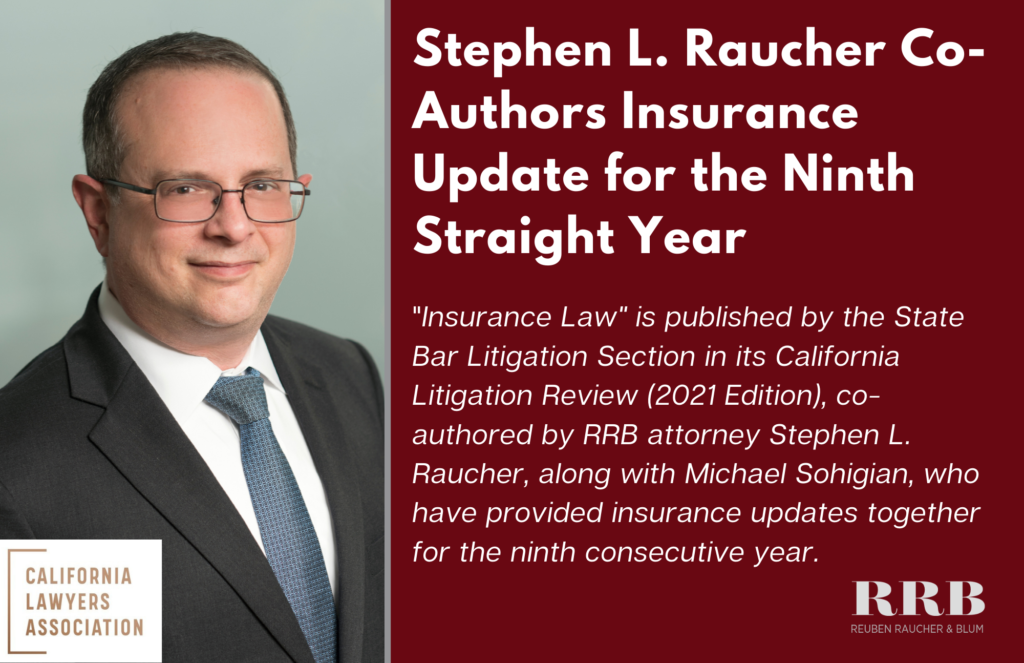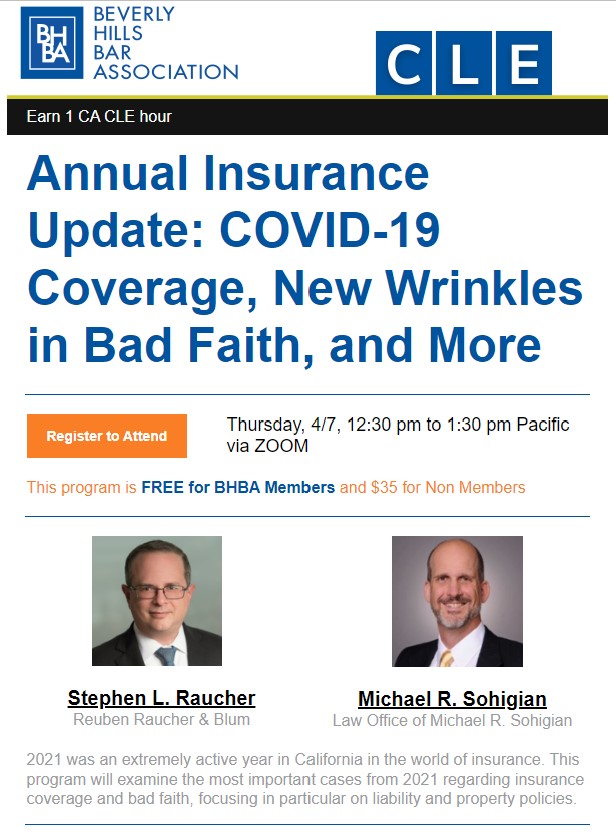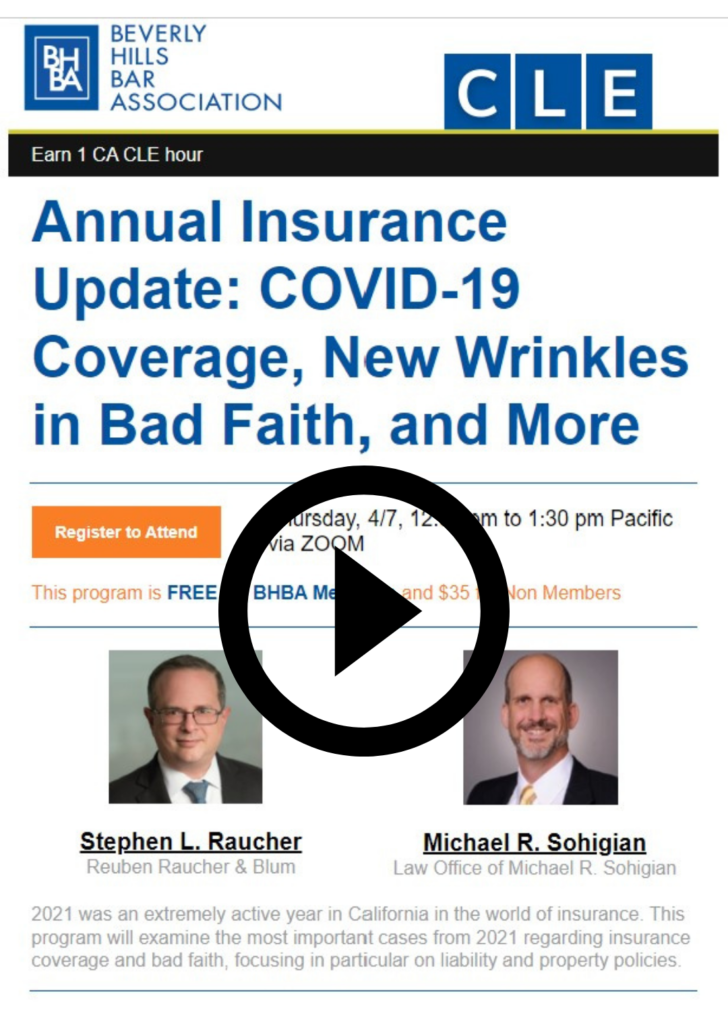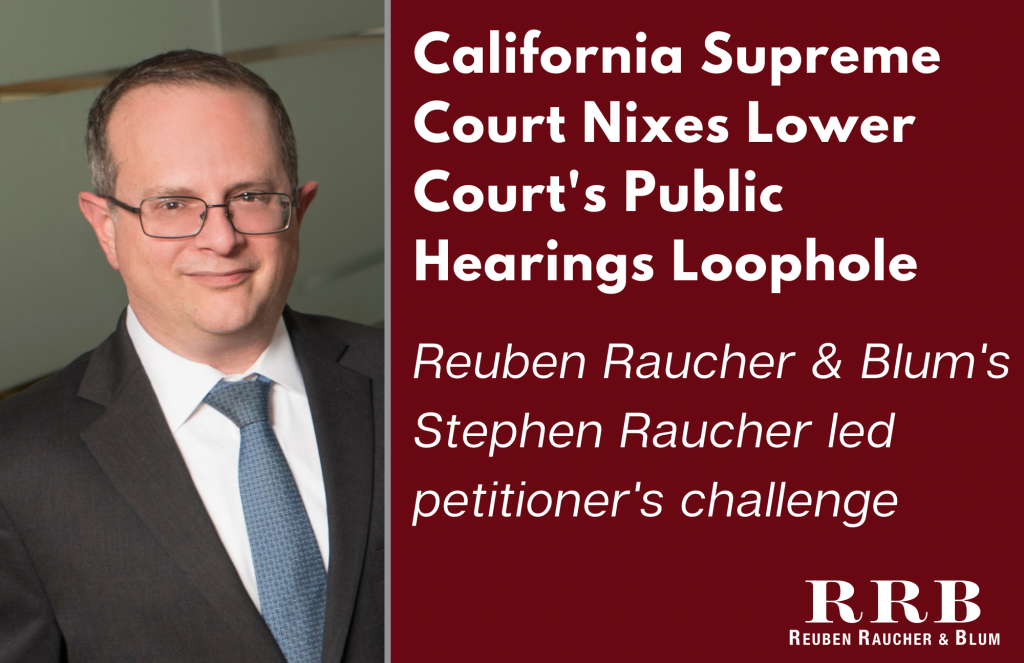
In Changsha Metro Grp. Co., Ltd. v. Xufeng, 57 Cal. App. 5th 1 (2020), the Court of Appeal, Fourth Appellate District, clarified that the “safe harbor” provision of Code of Civil Procedure Section 128.5 does not apply where attorney’s fees are sought by a party opposing an anti-SLAPP motion which the court finds to have been frivolous.
The trial court found that Defendants Peng Xufeng and Jia Siyu filed a frivolous anti-SLAPP motion against Changsha Metro Group Co., Ltd. The trial court then ordered Defendants to pay Changsha $61,915 for Changsha’s attorney’s fees in opposing the anti-SLAPP motion. Defendants appealed, arguing (1) that they were not given a 21-day safe harbor period within which to withdraw their motion, and (2) Changsha requested attorney’s fees in its opposition to the anti-SLAPP motion, rather than in a separate motion. Defendants appealed and the Court of Appeal affirmed.
The anti-SLAPP statute states that, if an anti-SLAPP motion is frivolous, then “the court shall award costs and reasonable attorney’s fees to a plaintiff prevailing on the motion, pursuant to Section 128.5.” Code of Civil Procedure § 425.16(c)(1). However, the anti-SLAPP statute also requires that the hearing on the motion be scheduled not more than 30 days after service. Code of Civil Procedure § 425.16(f).
Code of Civil Procedure § 128.5(a) states, “A trial court may order a party, the party’s attorney, or both, to pay the reasonable expenses, including attorney’s fees, incurred by another party as a result of actions or tactics, made in bad faith, that are frivolous or solely intended to cause unnecessary delay.” Moreover, Section 128.5(c) states, “Expenses pursuant to this section shall not be imposed except on notice contained in a party’s moving or responding papers or, on the court’s own motion, after notice and opportunity to be heard.” Therefore, attorney’s fees may be awarded as expenses, and expenses may be requested in a party’s responding papers, which is what Changsha did.
In regards to Defendants’ arguments, Code of Civil Procedure § 128.5(f) authorizes the trial court to impose sanctions, which can include attorney’s fees, if (1) the motion is “made separately from other motions or requests,” and (2) a 21-day safe harbor notice is served if the offending document can be withdrawn or corrected. Code of Civil Procedure § 128.5(f)(1)(A) & (B). However, the Court found that subdivision (f), which requires an order under subdivision (a), is not compatible with subdivision (c), reasoning that “If one obtains an order under subdivision (a), then the safe harbor provision of subdivision (f) is rendered meaningless because it will be impossible to withdraw a motion or pleading that has already been found to be frivolous or not under subdivisions (a) and (c).” Id. at 11-12. Moreover, the 21-day safe harbor provision is incompatible with the requirement that an anti-SLAPP motion be heard within 30 days of service.
After analyzing the statutes and reviewing the relevant legislative history, the Court concluded that subdivision (f) does not work with the anti-SLAPP statute. Accordingly, the Court held “that if it is not possible to comply with the safe harbor and separate motion requirements of subdivision (f) when seeking attorney’s fees, then one should use the procedures set forth in subdivisions (a) and (c).” Id. at 18. The Court further concluded, “when it is not practical to apply the safe harbor provision then it need not be used.” Ibid. Thus, a party seeking sanctions under Section 128.5 for opposing a frivolous anti-SLAPP motion may simply seek attorney’s fees as part of its opposition, without complying with the 21-day safe harbor procedure.




